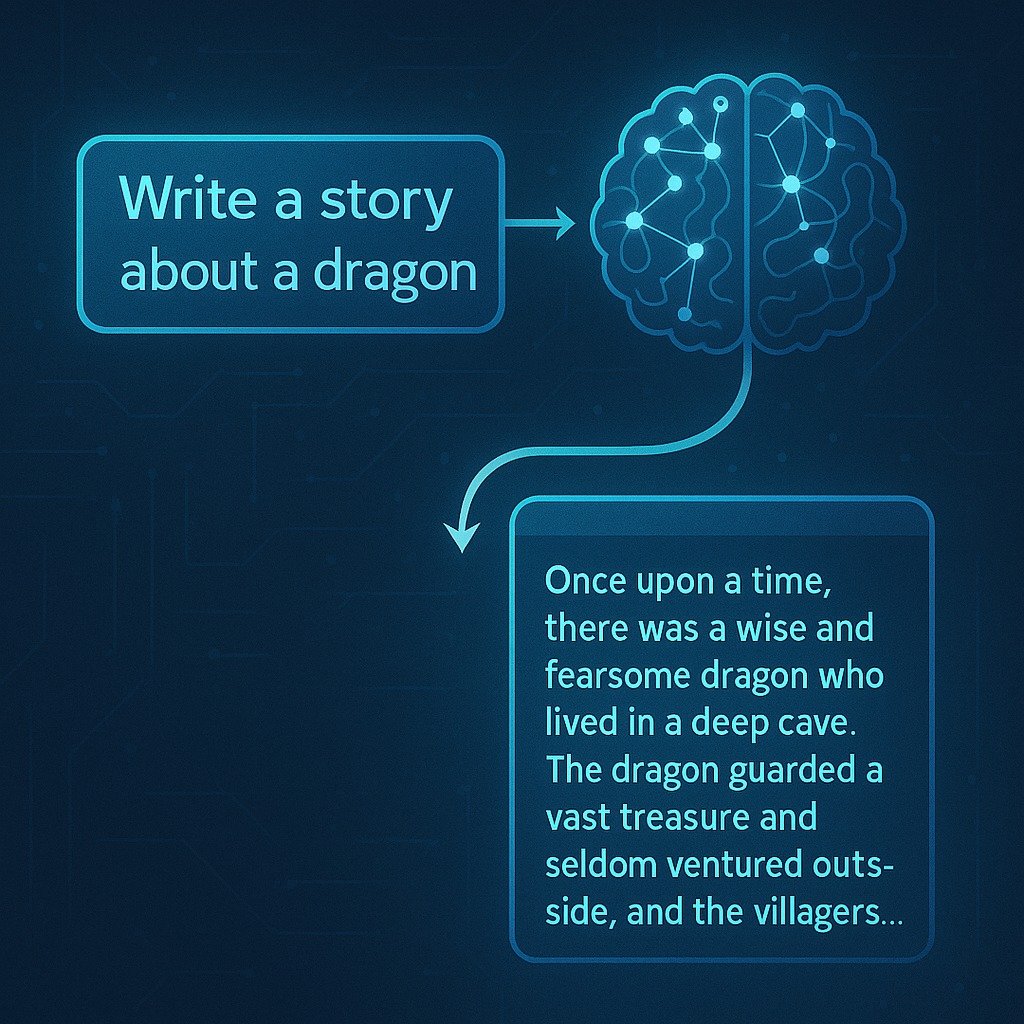Prompting an LLM for a text generation task is both an art and a science. Whether you’re generating content, code, or summaries, how you craft your prompt directly influences the quality and relevance of the output.

What Is Prompting in LLMs?
Prompting refers to giving input text (the prompt) to a large language model (LLM) to elicit a desired response. This input can include instructions, context, or examples to guide the model’s output.
Best Practices for Prompting an LLM
1. Be Clear and Specific
Vague prompts lead to vague answers. For example:
- ❌ “Tell me something about history.”
- ✅ “Write a 200-word summary of World War II causes.”
2. Provide Context
LLMs benefit from additional information. Include relevant background or details to improve accuracy.
3. Use Instructional Prompts
Directly tell the model what to do:
- “Summarize the following article…”
- “Write a poem about autumn in haiku format.”
4. Add Examples (Few-Shot Prompting)
Include examples if possible. This shows the model the structure or tone you want.
5. Test and Iterate
Try multiple prompt variations and refine based on output quality.
Types of Prompts for Text Generation
- Zero-shot: No examples, just an instruction
- Few-shot: Includes a few examples
- Chain-of-thought: Prompts that encourage step-by-step reasoning
Each method has different strengths depending on your task.
Common Use Cases
- Content creation: Blogs, articles, stories
- Code generation: Function templates, documentation
- Summarization: News articles, research papers
- Conversational agents: Chatbots, support assistants
Internal and External Resources
Learn how LLMs generate text: [How LLMs Are Trained]
Further reading:
Conclusion
Prompting an LLM for a text generation task requires clarity, context, and creativity. By refining your prompts, you can harness the full power of AI to generate high-quality content across diverse use cases.
CTA: Ready to level up your LLM prompting skills? Try creating variations and analyze their effectiveness today!
FAQ: Prompting an LLM for a Text Generation Task
What is a good prompt for an LLM?
A good prompt is clear, specific, and includes context or examples to guide the LLM.
How do I improve LLM text generation?
Refine your prompt, test different formats, and use few-shot examples or step-by-step instructions.
Can prompts change LLM output quality?
Absolutely. Prompt phrasing can significantly impact the coherence, tone, and accuracy of the generated text.


Leave a Reply